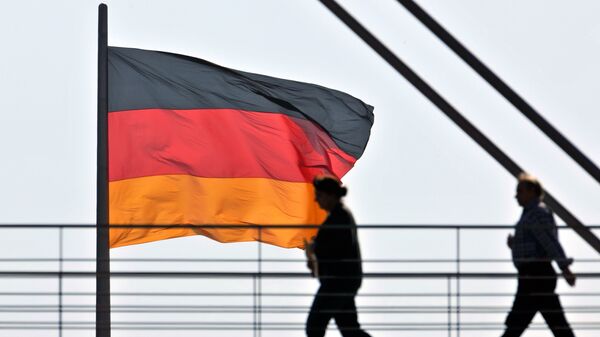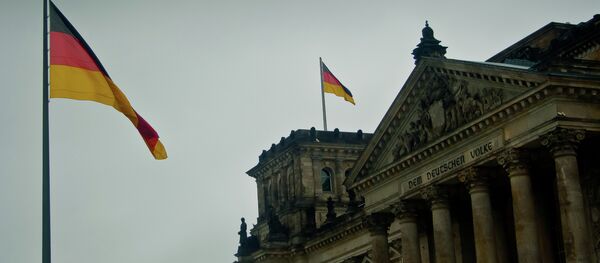Kristian Rouz — German economic growth prospects, shaken by weakening international demand for exported manufactured goods and declining business confidence, have gained unexpected traction from domestic factors, such as rising consumer demand and capital expenditure, along with an increased fiscal spending. The German government is still running a fiscal surplus, however, whilst current account balance is still in the positive territory despite a drop in exports and rise in imports. Yet, as global headwinds have proven to be persistent, the positive effects of Germany's position in international trade might erode, while a more substantial readjustment to a domestically-driven growth model is a longer-term prospect.
Slowdown in global economy, underlined by weakening demand for manufactured goods as illustrated by mainland China's factory-gate disinflation, has been pressuring the German economy since late 2015. Germany, heavily reliant on balance sheet and fiscal surpluses, is facing a prospect of economic slowdown as well, reflected by latest LFO reading of business confidence, posting losses for a third consecutive month in February.
German business sentiment, according to LFO Institute's benchmark index, dropped sharply this month, to 105.7 from 107.3 in January, compared to previous estimates for February at 106.8.
German GDP rose 0.3% in the last quarter of 2015, the FSO reported, driven by gains in domestic investment, governmental spending, and consumption. Investment added 1.5% in the last quarter of 2015 compared to minor gains at 0.1% the previous quarter, while fiscal expenditure rose 1% from 0.5%, whilst individual consumption rose only 0.3% compared to 0.6% in July-September period.
"It was very much about consumers last year," Jennifer McKeown of the London-based Capital Economics Ltd said. "Now that the oil prices have fallen sharply, inflation has fallen quite sharply, that's given a boost to real incomes and German consumers have responded."
The federal government had a fiscal surplus of 19.4 bln euros in 2015, or 0.6% GDP, meaning the governmental involvement in the economy has a solid potential to grow amidst the prevailing negative tendencies and outlook.
German manufacturing is at risk amidst the global economic cooling. According to a report by Markit Economics, the German factory Purchasing Managers' Index (PMI) dropped to 50.2 in February from 52.3 the previous month. Readings above 50 indicate expansion, while below that suggest a contraction, meaning the German manufacturing sector is taking a hit from falling exports.
"The outlook for the global economy is still cloudy," Lothar Hessler of the Duffeldorf-based HSBC Trinkaus & Burkhardt AG said. "There's higher uncertainty."
All that said, the German economy is slowing down in spite of positive domestic figures. The European Central Bank (ECB), reacting to the macro indicators, might further boost their monetary stimulus during their policy meeting on 10 March, yet, with select interest rates already in the negative territory and massive bonds buyouts going on, the effects of further loosening monetary conditions will likely be only negligible.
A pickup in domestic consumption could save the day for Germany, but the pace of adding new jobs slowed to 12-months lowest in February, according to Markit report. The scale of governmental expenditures is bound to build up in such circumstances.



